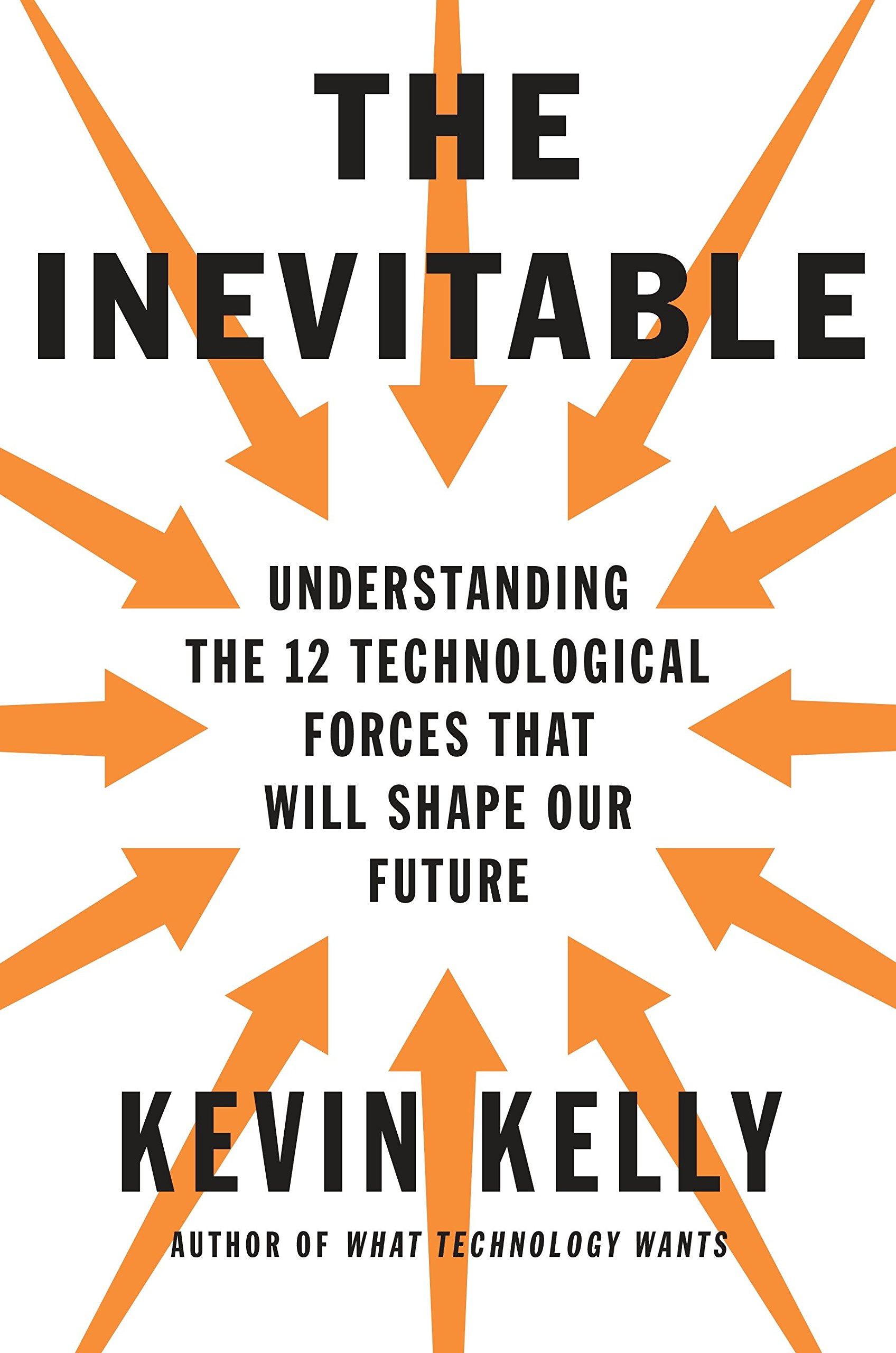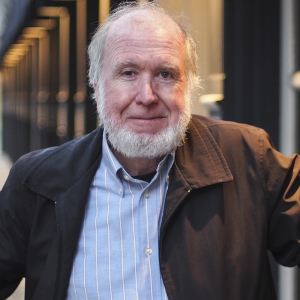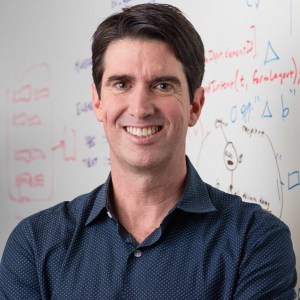Kevin Kelly Speaker Biography
Digital Visionary; New York Times Bestselling Author, The Inevitable; Writer on Business and Cool Tools; Co-Founder and Senior Maverick, WIRED
Kevin Kelly has been a participant of, and reporter on, the information technology revolution for more than 30 years. Based in his studio in Pacifica, California, he immerses himself in the long-term trends of technology, tools and cultural behavior. He writes about the ripple effects and social consequences surrounding the culture of technology.
Bestselling Author
His New York Times bestselling book titled The Inevitable chronicles how our lives in the near future will be shaped by a few long-term technological trends that are inevitable. Kelly’s previous book, What Technology Wants, presents a refreshing view of technology as a nearly living force in the world that affects society in an overall positive way. His other recent works include the graphic novel The Silver Cord and Cool Tools: A Catalog of Possibilities, a large-format, highly curated guide to the best of technology, tools and resources for modern self-sufficient living, which has already been compared to The Whole Earth Catalog of a generation ago. His most recent book, Vanishing Asia: Three Volume Set: West, Central, and East, shares vivid imagery of the 35 countries in Asia he has traveled to, giving a thorough look at the most remote places and capturing the costumes, architecture, festivals, and lifestyles that are vanishing.
WIRED Magazine
Kelly is currently Senior Maverick at WIRED magazine. He helped launch WIRED in 1993, and served as its executive editor until January 1999. During Kelly’s tenure as editor at WIRED, the magazine won two National Magazine Awards (the industry’s equivalent of two Oscars). He is also currently editor and publisher of the Cool Tools website, which gets 1 million visitors per month. From 1984-1990, Kelly was publisher and editor of the Whole Earth Review, a journal of unorthodox technical news. He co-founded the ongoing Hackers’ Conference and was involved with the launch of the WELL, a pioneering online service started in 1985.
Media
He authored the best-selling New Rules for the New Economy and the classic book on decentralized emergent systems, Out of Control, called “required reading for all executives” by Fortune. In addition, he writes for prominent publications including The New York Times, The Wall Street Journal, The Economist, Time, Harpers, Science, GQ, and Esquire.
Earlier in life, Kelly was a photographer in remote parts of Asia (instead of going to college), publishing his photographs in national magazines and recently in the photo art book Asia Grace.
Kevin Kelly Speaking Topics
Your New Universal Personal Intern Is Ready To Co-Create With You
It’s no exaggeration to call images and writing generated with the help of AI “co-creations,” says Kevin Kelly, who has been at the forefront of emerging technology for over 30 years. According to Kelly, who is the Senior Maverick and co-founder of WIRED, the secret of this new power is that the best applications of it are the result of very long conversations between humans and machines. “Generative AIs are what I would call UPIs – universal personal interns,” reveals Kelly, who is so electrified by AI tools like Midjourney, DALL-E and ChatGPT that he makes a piece of AI-generated art every day. “You now have a navigator helping you drive around, a librarian helping you search and now we all have interns.” Renowned for his optimistic outlook, Kelly encourages writers, programmers and others in creative fields with his very clear prediction that not a single human artist will lose their job because of this new technology. “You work with interns, and they do all kinds of amazing things, but it’s embarrassing to release the interns’ work without checking it,” he laughingly explains. Kelly, who is also the bestselling author of “The Inevitable” (2016), pushes for organizations to establish AI consensus and policies, calling this a sophisticated and enlightened solution to using this tech to enhance human work, instead of replacing it. Using accessible metaphors, Kelly brings audiences an overview of generative AI’s current and future applications, including practical suggestions for anyone who can use a little extra help in their daily workloads.
The Future Will Be Shaped By Optimists
In a world of overwhelming problems, being optimistic is a competitive advantage. In this enlightening presentation, Wired co-founder Kevin Kelly lays out four big reasons to be as optimistic as possible. Complex good things cannot be created inadvertently. We can only make great things if we imagine them first. And part of that vital imagination is to believe that solutions can work. We are more likely to create solutions if we believe they are possible. In fact, people and institutions behave better if they believe that problems can be overcome. Kelly also emphasizes that optimism is a type of trust. We trust that future generations — and future us — will be better equipped and prepared than us today. Therefore we can embark on solutions that may not be immediate. Finally, optimism is the foundation of progress. If we look at scientific evidence rather than news, we are forced to acknowledge that progress is real, on average around the globe. It could suddenly stop, but all probability says progress will continue. Thus optimism is the most realistic view of the world. Looking back we can see that it is the optimists who shape our world, and that if we desire to shape the coming world we need to be as optimistic as we can. Kelly then describes the five larger economic, cultural, and technological forces at work in the world that will help us be optimistic.
Embrace the Inevitable & Steer the Future of Technology
Much of what will happen in the next 30 years is inevitable, driven by technological trends which are already in motion, says Wired co-founder Kevin Kelly. The coming technology will indeed transform our work and our lives – but not for the worse. Kelly examines 12 big technological forces that will shape our future. In an expansive talk that looks out over the next 30 years, he both describes these deep trends – flowing, screening, accessing, sharing, filtering, remixing, tracking and questioning – and demonstrates how they overlap and are codependent on one another. These larger forces will completely revolutionize the way we buy, work, learn and communicate with each other. Some of what is coming may seem scary, like cheap artificial intelligence, ubiquitous tracking or robots replacing humans. Other innovations seem more desirable, such as an on-demand economy and virtual reality in the home. Kelly shows how these diverse disruptions in our lives in the near future can be understood as inevitable results of a few long-term trends. By understanding the larger inevitable trends, it’s easier for us to arrange our day to day relationships with technology in a way that brings forth maximum benefits. Embracing the inevitable is the best way we can remain on top of the coming wave of changes.
Welcome to Mirrorworld: How AR Will Join the Physical and Virtual
Imagine being able to access any place on earth virtually – while remaining in your present physical space. According to Wired co-founder Kevin Kelly, that new reality is steadily approaching. Augmented reality (AR) headsets will soon replace handheld devices as our primary entry point to a digital dimension. Instead of looking at 2D pictures of places and things on the internet, we will walk into a virtual, 3D map of the world and interact with it. This is what Kelly calls “Mirrorworld,” and he says creating an accessible, digital version of our entire universe will be an achievement that will eclipse even the creation of the world wide web. Organizations ranging from the U.S. Army to General Electric are already capitalizing on this technology – and the bits and pieces of Mirrorworld which have already been created – to improve training and industrial production, respectively. Retailers such as Wayfair, Amazon and Walmart use phone apps to allow consumers to see digital furniture in their physical homes; soon these apps will be replaced by widely-available AR headsets. How will your company harness these inevitable trends to expand efficiency, productivity and customer experience? In this presentation, Kelly reveals the powers and transformative opportunities of Mirrorworld.
The Technium
What comes after the Internet? What is bigger than the web? What will produce more wealth than all the startups to date? The answer is a planetary super-organism comprised of 4 billion mobile phones, 80 quintillion transistor chips, a million miles of fiber optic cables, and 6 billion human minds all wired together. The whole thing acts like a single organism, with its own behavior and character – but at a scale we have little experience with. This is more than just a metaphor. In this presentation, Wired co-founder Kevin Kelly takes the idea of a global super-organism seriously by describing what we know about it so far, how it is growing, where its boundaries are, and what it will mean for us as individuals and collectively. Both the smallest one-person enterprises today, and the largest mega-corporations on Earth, will have to learn to how this Technium operates, and how to exploit it.
Current Technologies of Disruption
Progress is uneven. We can count on most things getting better incrementally, but some inventions are disruptive, causing discontinuities in society and business. Think ink-jet printing, online auctions, digital cameras. During these disruptions, incumbents are overturned, and outsiders take center stage to become the main event. In many of the examples of past, the disruptive technologies were initially dismissed as marginal toys, too niche, unprofitable, or broken. And they were. But their revolutionary benefits made them worth investing in and improving. In this presentation, Wired co-founder Kevin Kevin outlines 10 current technologies of disruption, now in their infancy, on their way to overturn entire industries.
Kevin Kelly Books

The Inevitable: Understanding the 12 Technological Forces That Will Shape Our Future
Purchase Book
Excellent Advice for Living: Wisdom I Wish I’d Known Earlier
Purchase Book





